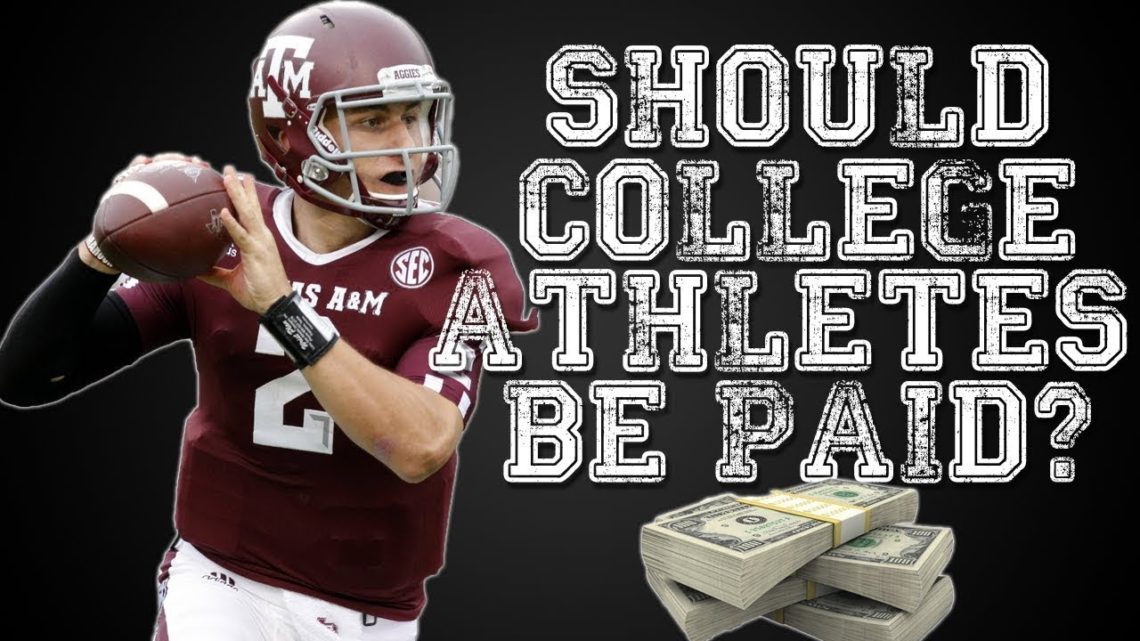There is a long-held debate on whether college athletes should be paid for their services or not. The real problem isn’t about the college athletes competing against each other. In fact, it is an industry worth multi-billions and involves third-party businesses.
The issue further intensified when National Collegiate Athletics Association (NCAA) prohibited the athletes from earning through their services, although NCAA achieves over $1 billion/year for student-athletes capabilities.
If college athletes challenge this rule, they can get unqualified to play in any of the events organized by the NCAA.
Seton Hall Sports Poll in 2019 revealed that 60% of the audience agreed to allow the college athletes the compensation for their reputation and likeness, 32% disagreed, and 8% were unsure.
This poll showed quite different results than that conducted in 2017, which showed that 60% think college scholarships are enough as compensation for college athletes.
To better understand this issue, you must know the pros and cons of paying college athletes. Only then can you decide whether they should be paid for their services or not.
What would happen if NCAA decided to pay college athletes?
Pros
- Athletes can support their families
Since many athletes belong to urban and low-class families, they have to be the bread earners of their families at a very young age. Compensations would allow such players to afford good meals, support their families, and send some money back home.
- Minimizing chances of corruption
There are good chances that compensation would limit the cases where college athletes got involved in corruption with agents, boosters, and others.
- They deserve this
College athletes are responsible for bringing a lot of revenue to educational institutions and the NCAA. Brands pay the athletic department of educational institutions up to $100 million a year. The revenue directly depends on the students’ influence and fame. Fans of athletes would literally buy any product with the team or player’s logo.
Apart from that, coaches also get extra payment to encourage students to wear the products in unison. So, compensating student-athletes for their contribution in generating revenue would be their rightful share.
- No need for additional employment
Scholarships pay for the additional expenses of the educational institute, but not every student gets the scholarship. Ultimately, students have to pay their fees through loans. Compensation for their services can help them manage their educational costs easily.
➡LEARN MORE: Professional Athlete • Job Description, Salary & Benefits
Cons
- Many college athletes already receive scholarships
Definitely, not every student-athlete receives a scholarship and other benefits, but many are. Athletes playing for national championships are mainly included in this category. In addition to free tuition and room, these students also receive stipends for expenses related to books and other basic needs.
Thus, most of the student-athletes are financially stable to get through their college years without any debt.
- Athletes study less
It’s a fact that athlete students don’t attend their classes and study as others do. When they are given enough compensation, they hardly wish to go to their classes. Added to that, receiving grades without doing any study work will make them more reluctant.
- It may become unaffordable for the universities
Critics say that if paying college athletes becomes a law, it will be impossible for universities to bear with that, and many will drop their athletic departments. This is because they have to cut their budget for athletes, and other departments would not get enough.
Only 357 post-secondary institutions are under NCAA Division I. The remaining institutes are inferior in their athletic performances and don’t enjoy similar scholarship benefits. Mandating the pay would lessen the athletic students outside Division I and II.
- It can lead them to unionize
Mandating the pay would convert it into a legal employment contract and provide athletes an opportunity to unionize. This means they will be managing the same matters as professional athletes and franchises do.
As a result, in every division, the best student-athletes would receive more representation, and their attention would divert from the joy of the game to get the best contract.

The essential springboard into the job market for school leavers, students and graduates.
The AllAboutGroup have worked across more than 1000 campaigns with HR teams from over 250 firms over the last decade as their partners to help them solve problems across all parts of the recruitment process.


